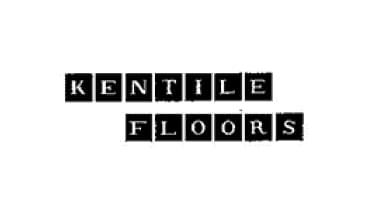
Sean Fitzgerald, PG, is a research geologist specializing in asbestos environmental studies.
The Metex Asbestos PI Trust formed in 2014 to handle asbestos claims from Kentile Floors. It started with $193 million and began paying claims to those who developed mesothelioma and other eligible conditions as a result of exposure to Kentile asbestos products.

Kentile filed for bankruptcy in 1992 after facing thousands of asbestos lawsuits. The company reorganized as Metex Manufacturing in 1998 and took on Kentile’s asbestos liabilities, handling around 20,000 claims initially.
Kentile Asbestos Trust Updates
Metex filed for bankruptcy again in 2014 with about 6,000 active claims. Within the bankruptcy process, the asbestos trust fund was created. Once a fund like this is created, all existing and future claims are handled through the trust rather than in the courts.
For the Metex Asbestos PI Trust, the payment rates dropped to 7.25% in 2020. Then in 2023, the trust added an extra compensation for delayed payments but only for certain claims.
People exposed to asbestos from Kentile Floors can seek legal help with experienced asbestos attorneys who specialize in trust fund claims. They can file your claim with the Metex Asbestos PI Trust and navigate complex legal processes to secure your mesothelioma compensation. The strict time limits on claims mean that prompt legal advice is crucial.
Navigating legal representation for your family’s needs is an important decision. Patient Advocates work to pair you with attorneys who have specific experience in cases like yours, while also exploring whether you’re eligible for other forms of financial aid.

You shouldn’t have to choose between getting care and paying for it. Get the financial support you deserve.
See My OptionsKentile Floors had already faced thousands of individual injury claims before filing for bankruptcy in 1992 and reorganizing as Metex Manufacturing Company in 1998. William and Judith Harrell filed their lawsuit after the bankruptcy but before the asbestos trust began paying claims, a period when Metex remained directly responsible for Kentile’s asbestos liabilities.
The Harrells’ lawsuit alleged that asbestos in Kentile flooring contributed to Judith Harrell’s injuries. In August 2010, a jury found Kentile partially responsible for her pain and suffering. The jury determined that asbestos from Kentile products, along with asbestos from Ford Motor Co, ExxonMobil and Georgia-Pacific products, played a role. The award totaled nearly $1.6 million, and Kentile was responsible for 6% of that amount.
This case shows how asbestos exposure from Kentile products harmed people long after installation. Asbestos litigation often involves multiple manufacturers because asbestos was widely used in building materials.
For example, in California, a jury awarded William and Judith Harrell $1.6 million in a case where Kentile Floors was found partly responsible for asbestos-related injuries. Law firms in the state helped secure compensation by proving Kentile’s role alongside other manufacturers.
Many remember Kentile Floors for the company’s 8-story sign visible from the Gowanus Expressway in Brooklyn. When lit up in bright neon purple, the sign could be seen from miles away. Unfortunately, the company is also remembered for using asbestos in a wide range of flooring materials.
During the 1950s and 1960s, Kentile became one of the nation’s largest manufacturers of resilient floor tile and a leading distributor nationwide. The company advertised its products in publications like Popular Science and promoted them as durable, greaseproof and easy to clean. Kentile highlighted asbestos fibers as a selling point, calling them sturdy and heat resistant.
By 1969, Kentile expanded into vinyl sheet flooring, which had asbestos backing that crumbled easily when disturbed. This created serious asbestos exposure risks for workers, homeowners and those who installed or repaired the flooring. Asbestos can lead to serious respiratory conditions, including mesothelioma, lung cancer and asbestosis.
Kentile Floors manufactured and sold asbestos products for decades, especially in floor tiles that became common in homes, schools and commercial buildings. The company relied on asbestos for its strength, low cost and heat resistance.
Asbestos-Containing Kentile Flooring Product
Kentile promoted its tiles as durable, greaseproof and easy to clean, often pointing to asbestos fibers as a benefit. While cork tiles themselves likely didn’t contain asbestos, Kentile’s vinyl tiles made to look like cork did.
Kentile Floors workers who worked with the company’s products were at increased risk of asbestos exposure. Occupational asbestos exposure is the leading cause of mesothelioma.
Higher-Risk Occupations
Workers outside the flooring trade often faced exposure during demolition, remodeling or floor replacement. Cutting, grinding or breaking Kentile tiles released asbestos fibers into the air, where people could inhale or swallow them. For example, janitors polishing or stripping floors often disturbed the tiles and faced similar risks.
Teachers and students faced asbestos exposure risks in schools from Kentile’s products. Everyday activities, such as moving desks, can potentially release fibers into the air when scraping them across worn or damaged asbestos floor tiles. These airborne asbestos fibers could then be inhaled or swallowed.
The general public could encounter asbestos fibers in older buildings where Kentile flooring remains in place. Walking on worn or damaged tiles or accidentally impacting them could release fibers.
DIY home renovators and hobbyists also risked asbestos exposure. Cutting, sanding or removing tiles during remodeling could release dangerous asbestos fibers in the home. Anyone interacting with these floors should exercise caution and consider professional asbestos removal if they suspect the tiles contain asbestos.
Recommended ReadingStay up-to-date on treatment, research, clinical trials, doctors and survivors
The information on this website is proprietary and protected. It is not a substitute for professional medical advice, diagnosis or treatment. Any unauthorized or illegal use, copying or dissemination will be prosecuted. Please read our privacy policy and terms of service for more information about our website.
This website and its content may be deemed attorney advertising. Prior results do not predict a similar outcome.
The Mesothelioma Center’s claim as the most trusted resource is based on our more than 150 5-star Google and BBB reviews. Our organization also helps more than half of all mesothelioma patients annually diagnosed.
Your web browser is no longer supported by Microsoft. Update your browser for more security, speed and compatibility.
If you are looking for mesothelioma support, please contact our Patient Advocates at (855) 404-4592
The Mesothelioma Center at Asbestos.com has provided patients and their loved ones the most updated and reliable information on mesothelioma and asbestos exposure since 2006.
Our team of Patient Advocates includes a medical doctor, a registered nurse, health services administrators, veterans, VA-accredited Claims Agents, an oncology patient navigator and hospice care expert. Their combined expertise means we help any mesothelioma patient or loved one through every step of their cancer journey.
More than 30 contributors, including mesothelioma doctors, survivors, health care professionals and other experts, have peer-reviewed our website and written unique research-driven articles to ensure you get the highest-quality medical and health information.
My family has only the highest compliment for the assistance and support that we received from The Mesothelioma Center. This is a staff of compassionate and knowledgeable individuals who respect what your family is experiencing and who go the extra mile to make an unfortunate diagnosis less stressful. Information and assistance were provided by The Mesothelioma Center at no cost to our family.LashawnMesothelioma patient’s daughter


Asbestos.com. (2025, December 15). Kentile Floors. Retrieved January 22, 2026, from https://www.asbestos.com/companies/kentile-floors/
"Kentile Floors." Asbestos.com, 15 Dec 2025, https://www.asbestos.com/companies/kentile-floors/.
Asbestos.com. "Kentile Floors." Last modified December 15, 2025. https://www.asbestos.com/companies/kentile-floors/.
An occupational scientist or another expert who specializes in occupational hazards reviewed the content on this page to ensure it meets current scientific standards and accuracy.

Sean Fitzgerald, PG, is a research geologist specializing in asbestos environmental studies.
Our fact-checking process begins with a thorough review of all sources to ensure they are high quality. Then we cross-check the facts with original medical or scientific reports published by those sources, or we validate the facts with reputable news organizations, medical and scientific experts and other health experts. Each page includes all sources for full transparency.
Please read our editorial guidelines to learn more about our content creation and review process.
